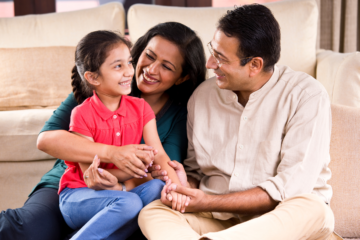This post may be emotionally triggering for some of our community members. Our intention is to create a platform where we can be transparent with our mental health experiences. If you require support please reach out for help to individuals within your network or visit our website for resources.
Grieving the loss of a loved one is never a smooth road, but as a suicide survivor, the path is filled with immense hardships.
“A suicide survivor or survivor of suicide is one of the family and friends of someone who has died by suicide.
Given the social stigma associated with suicide, suicide survivors are often unable to cope with their loss and grief using normal support systems and are “forced into a privatized and individualistic mode of grieving,” making the healing process even more difficult.”
Wikipedia
Hi,
I am Sukh*, a survivor of suicide. In 2010, a twist of fate event took my life to this unknown path of grief after I lost my dad to suicide. I had barely stepped into my teens, not knowing much about life, let alone death. Today, on world suicide day, I want to take this opportunity to share my light of hope and togetherness with survivors of suicide in the South Asian Community.
Why is it important to talk about being a suicide survivor?
With suicide comes unresolved questions: When we lose someone to an illness, the doctors are there to help us with an answer. Yes, we might not fully accept or comprehend those answers, but there is some reasoning to help us get closure. With suicide as a cause, more often than not, the closure or reason is missing. A suicide survivor would have many questions due to the uncertainty of the events and might find oneself struggling for those whys and hows.
The social stigma: Many communities look at suicide as a stigma that becomes difficult to deal with for the person left behind. As a teenager in school, my friends would come up to me and tell me about the rumours they had heard about my dad’s death. It wasn’t easy to process, and I always felt like I should become invisible to my peers. The societal stigma attached to suicide can make the survivor feel isolated as the community comprehends it differently, and at times in not so comforting ways.
Guilt could follow: Everyone grieves differently, and the path is not linear for anyone going through different stages of grief (denial, anger, bargaining, depression and acceptance). One such phase might be where you feel guilty that maybe you didn’t do enough to save your loved one. Or perhaps a feeling that your actions harmed your loved one’s mental health. During the period of grief and in our desperation to have our loved one back, we become irrational beings and consider every would have, should have or could have situation.
Guilt is a normal grief emotion that can be rationalized, accepted, and worked upon with the help of a professional or by sharing it with friends and family.
As a survivor, there might be higher risk: It is understandable to have unstable feelings and a roller coaster of emotions after losing someone you cared for. There are chances that the unbearable pain makes you have suicidal thoughts as well. We always have to remember that having suicidal thoughts does not mean that you have lost control over your mind, life and actions. Do remind yourself that these thoughts will subside over time. Give yourself the time to heal. If you feel the thoughts are too intense, always consider seeking support from a professional.
What Helped Me Find Hope

The Mantra that kept me going: “God will never give me an obstacle that I can’t overcome.”
I have had various learnings over my grieving time. After talking to different counsellors, meditating, taking antidepressants, reading books, and talking to friends and family, altogether has helped me wrap my head around the events that had happened, the changes it made in me, and accepting myself. It isn’t an easy process and is very different for everyone. But I want to assure you there is always hope and light at the end of the tunnel. The learning you will have during your period of grief will make you come out as a much stronger person.
Time is truly the biggest healer; allow yourself to heal.
After my dad was hospitalized after the incident, I developed a fear of death. Every time I saw or heard someone being sick, I felt a fear that the person would die. I carried this fear for years, but it did get better once I started taking professional help and allowed myself to heal. We have to give ourselves that time and resources to heal.
It is okay to talk
For years it was difficult for me to share and express what happened, how it happened and how it affected me. It almost felt like a dark little secret I was meant to protect and take with me. But that’s not true. Sharing my feelings and incidents with my friends and family I trusted helped me accept my grief. Yes, of course, it is and always will be very difficult to share, and at times maybe I shared with the wrong people, and there was some resentment, but if I had always kept close, I wouldn’t have found those people who loved me for who I am.
Don’t let the societal stigma attached to mental health be your reason of not getting help
Depression can happen to anyone. There does not have to be a specific reason or incident that makes one go into depression. It is essential that we take charge of our mental health, make it a priority. Trust a counsellor or mental health professional to guide us with the next steps. Because once you are out of the blues, it is a beautiful world out there waiting to accept and love you!
Thank you Soch Mental Health, Canada for giving me an opportunity to heal by sharing my story on your platform.
– Sukh*
*name changed to protect anonymity


0 Comments